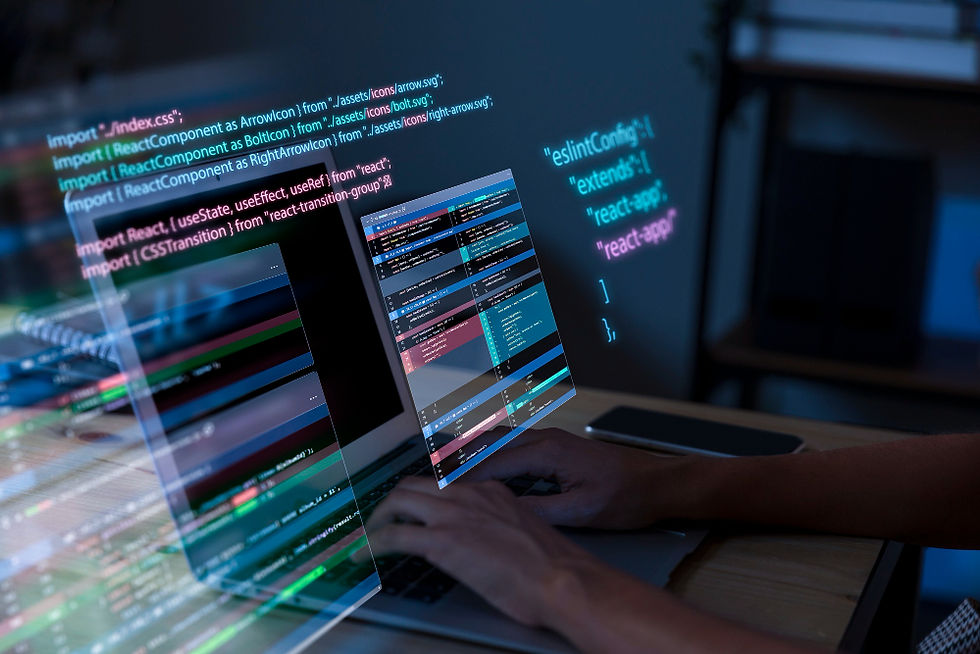How to Start Learning C++ Programming Language?
- WsCubeTech Jaipur
- Jun 5, 2023
- 3 min read

C++ is a general-purpose programming language that was developed in the late 1970s as an extension of the C programming language. It was created by Bjarne Stroustrup with the goal of adding object-oriented programming features to C while retaining its efficiency and low-level capabilities.
C++ is widely used in various domains such as system programming, game development, embedded systems, high-performance computing, and more. It provides a balance between high-level abstractions and low-level control, making it suitable for both high-level and low-level programming tasks.
Learning C++ programming language can be a rewarding journey. To get started, here are some steps you can follow:
Set Clear Goals: Determine why you want to learn C++ and what you hope to achieve with it. Having clear goals will help you stay focused and motivated throughout your learning process.
Understand the Basics of Programming: If you're new to programming, it's helpful to understand fundamental concepts like variables, data types, loops, conditionals, and functions. Familiarize yourself with concepts like algorithms and problem-solving techniques.
Choose Learning Resources: There are various resources available for learning C++, including books, online tutorials, video courses, and interactive coding platforms. Some popular resources include "The C++ Programming Language" by Bjarne Stroustrup (the creator of C++), websites like Codecademy, Udemy courses, and documentation from reputable sources like cppreference.com.
Setup Development Environment: Install a C++ compiler and an Integrated Development Environment (IDE) on your computer or work on online C++ compiler. Some commonly used options include Visual Studio, Code::Blocks, Eclipse, or Xcode (for macOS). These tools provide a coding environment with features like syntax highlighting, code completion, and debugging capabilities.
Learn Syntax and Language Features: Start by understanding the basic syntax of C++ and its core features, such as variables, data types, operators, control structures, functions, and object-oriented programming concepts (classes, objects, inheritance, polymorphism). Practice writing simple programs to reinforce your understanding.
Practice Regularly: Programming is a skill that improves with practice. Dedicate regular time to coding exercises and projects to reinforce your knowledge and build practical experience. Solve coding challenges, work on small projects, or contribute to open-source projects to gain hands-on experience.
Seek Help and Join Communities: Join online forums, discussion groups, or programming communities where you can ask questions and get help when you're stuck. Participate in programming communities like Stack Overflow or Reddit's r/cpp subreddit to interact with other programmers and learn from their experiences.
Build Projects: As you gain confidence in your skills, start building your projects. Projects help you apply what you've learned and provide valuable experience. Start with small projects and gradually work your way up to more complex ones. Consider working on projects that align with your interests or solve real-world problems.
Read and Practice Advanced Topics: Once you have a solid understanding of the basics, you can explore more advanced topics like templates, exception handling, memory management, standard libraries, and advanced data structures. Continuously challenge yourself and expand your knowledge.
Stay Updated and Keep Learning: Programming languages evolve over time, and new features are added. Stay updated with the latest trends and practices in C++. Follow reputable blogs, read books, attend conferences, and explore online resources to stay ahead of the curve.
Remember, learning C++ (or any programming language) requires patience, persistence, and hands-on practice. Embrace the learning process, and don't be afraid to make mistakes. With time and dedication, you can become proficient in C++ programming. Good luck!


Comments